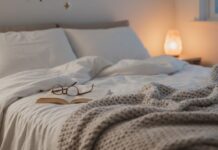Modern life hurls chaos in every direction. Routines unravel, phones ping non-stop, and stress intrudes uninvited. Yet what’s the alternative? Float through each day like a lost balloon? Hardly practical. Human beings need something to grasp. Small anchors and recurring patterns refocus attention on the essentials. That’s not philosophical fluff. It’s neuroscience lacing itself into daily experience. Consistently repeating simple actions is often all that stands between order and disorder. If we overcomplicate this, the essentials may become obscured by numerous wellness trends that are rarely sustained for more than a few weeks. What works is remarkably simple. Incorporating small doses of reliability into daily routines is effective.
Pause with Intention
There’s nothing flashy about stopping for a brief pause. People rush past it as if pausing is laziness or weakness. But look closely at those who seem genuinely calm under pressure. They’re masters of intentional breathers throughout the day. Here’s where it gets interesting: some have started using rituals involving calming herbal blends as part of their routine (think teas or infusions). The trend to buy CBD flower online aligns potentially perfectly with this desire to try to find stability without relying on pharmaceuticals or drastic measures. A quiet moment, accompanied by a cup, or another gentle ritual done mindfully, may provides space for mental regrouping before jumping back into action.
Walk without Distraction
Consider this shocking idea: take a walk somewhere without wearing headphones or scrolling endlessly on a screen. While it’s not suggested to manage important business calls while walking, consider taking a ten-minute break from digital distractions and observe the difference. The smell of a baker’s oven or the odd thrill of passing dogs trying hard to stay on their leads pops up. A ten-minute walk is frequently more invigorating than an hour of mindless indoor scrolling. Engaging with one’s surroundings can reset the neurological system and be nearly curative when viewed as a spiritual practice, rather than merely a task on a mobile app.
Tidy Something Small
While “tidy” often conjures up images of large cleaning projects that should be avoided until absolutely essential, small rituals can have a significant impact on mood and focus throughout the week. Use a desk corner, bedside table, or kitchen counter near the kettle, wherever it’s visible daily, and that works for you. Set aside five minutes (yes, only five) to restore order there every morning or evening, with no exceptions for busy days. The cumulative effect on well-being isn’t wishful thinking; psychologists have been studying it for ages now.
Note One Thing You’re Grateful For
Here comes gratitude again, not new advice by any means, but people often overlook its simplicity because they want fireworks rather than sparklers when feeling overwhelmed by life’s demands. Commit to writing down one thing each day that made existence feel lighter or brighter, a friendly email sent at just the right time, shoes not ruined by rain after all, or a stranger holding open a door when hands were full. This practice takes only seconds but rewires automatic thought pathways to foster optimism without the need for forced cheerfulness or elaborate journals filled with insincere positivity.
Conclusion
Small improvements build up faster than people imagine and are more beneficial than lifestyle changes overnight (which rarely last). Grounding doesn’t require large gestures, and no one has the energy to continue after the first week. It grows out of everyday moments handled with purpose rather than autopilot indifference. Build these micro-rituals into breakfast hours or late-night routines and watch how quickly stability becomes less elusive—even enjoyable—for those willing to risk slowing down amidst perpetual urgency.






